An Oxyrhynchus fragment with excellent Provenance P. Oxy. X 1265 ‘Affidavit of Priestly Rank’ c.250 AD
£0.00
Out of stock
Egyptian fragmentary papyrus from Oxyrhynchus, Roman period, dated to AD 336.
Comprising a fragment of twenty-eight lines of Greek text recording an oath by a priest that his priestly rank was derived from his father. A declaration on oath by Aurelius Thonius, son of Demetrius, of Oxyrhynchus, priest of the temples of Zeus, Hera, and other great gods, “celebrant of the divine images and their advancing victory, “addressed to Flavius Paranius, also called Macrobius, “logistes” of Oxyrhynchus, confirming that he holds his rank through his father Demetrius, also a priest in the same temples.28 lines(9¼x 33/8inches; 233 x 85 mm), verso blank, lacunae.
There is an extraordinary amount of rare information about late Roman religion contained in this record. Although set well within the Christian period of Oxyrhynchus, these are Egyptian temples dedicated jointly to a mixture of Egyptian, Greek, and Roman gods. Priests serving in the temple were of a demonstrable social rank, descended from priests; they could be either male or female, and they were able to marry. The Oxyrhynchus papyri were excavated by Bernard Grenfell and Arthur Hunt between 1896 and 1907. They were found at Oxyrhynchus, the capital of the 19th Nome and the third-largest city of Hellenistic Upper Egypt.
The fragments come from books and documents of daily life and they provide an insight into society, law, the economy and the literary culture of Egypt from the Ptolemaic through to Roman, Byzantine and Arab periods.
Provenance
1. Colgate Rochester Crozer Divinity School (Ambrose Swasey Library), Rochester, N.Y., donated in the early 20th Century by the Egyptian Exploration Fund.
2. Sotheby’s, New York, 20 June 2003, lot 94.
3. Private collection, sold Bonhams, London, 28 Nov 2018, lot 205.
4. Private European collection
Published
B.P. Grenfell and A. S. Hunt, The Oxyrhynchus Papyri, X, 1914, pp.189-91, no. 1265.
References
Notes on Papyrus Texts with the Roman Imperial Oath-Z. M. Packman, Zeitschrift für Papyrologie und Epigraphik, Bd. 89 (1991), pp. 91-102.
The Singular Circumstance of an Errant Papyrus-R. J. Schork, Arion 16.2 Fall 2008.
Be the first to review “An Oxyrhynchus fragment with excellent Provenance P. Oxy. X 1265 ‘Affidavit of Priestly Rank’ c.250 AD” Cancel reply
Product Enquiry
Related products
C12th - C13th manuscripts
C14th -C16th manuscripts
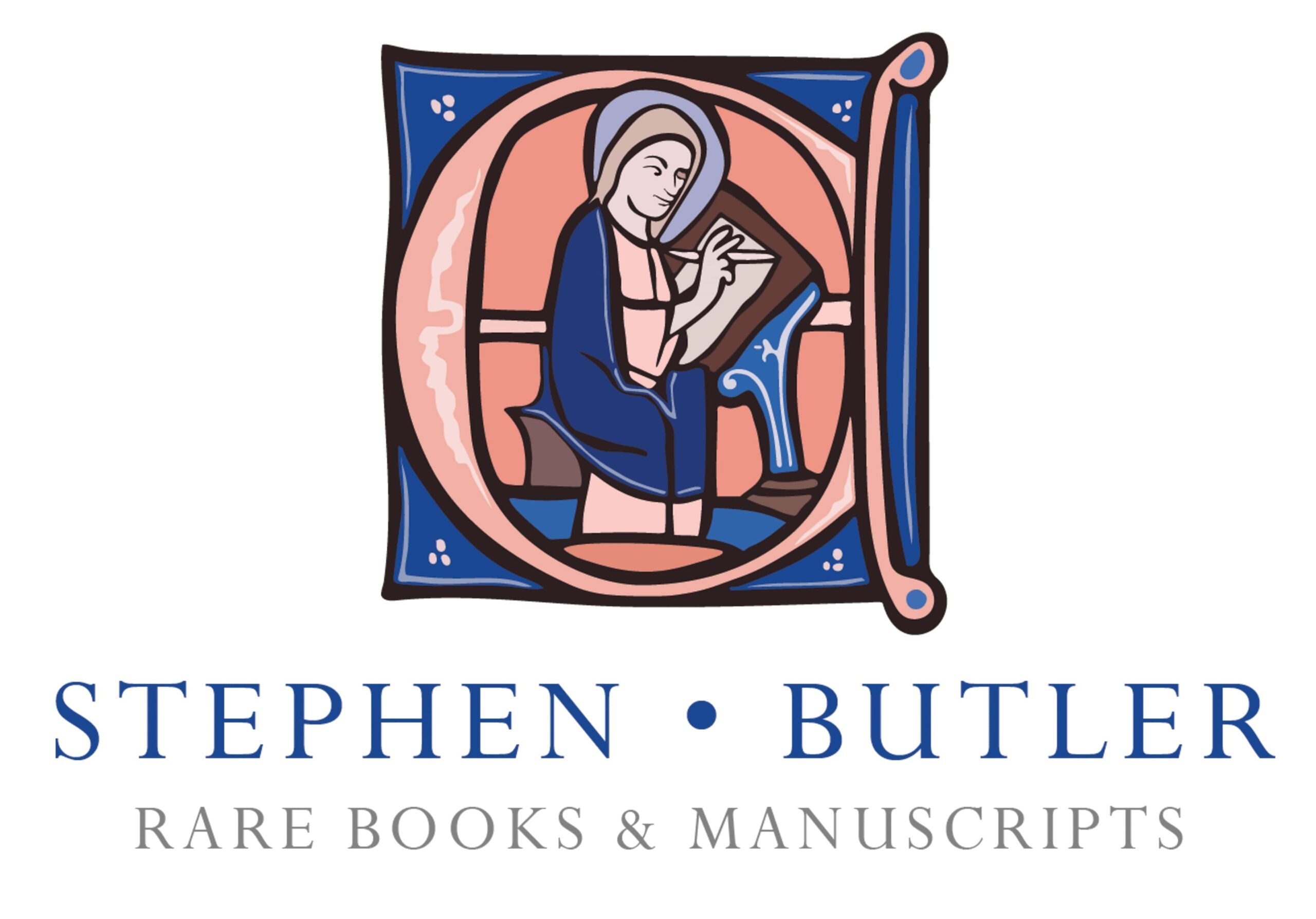
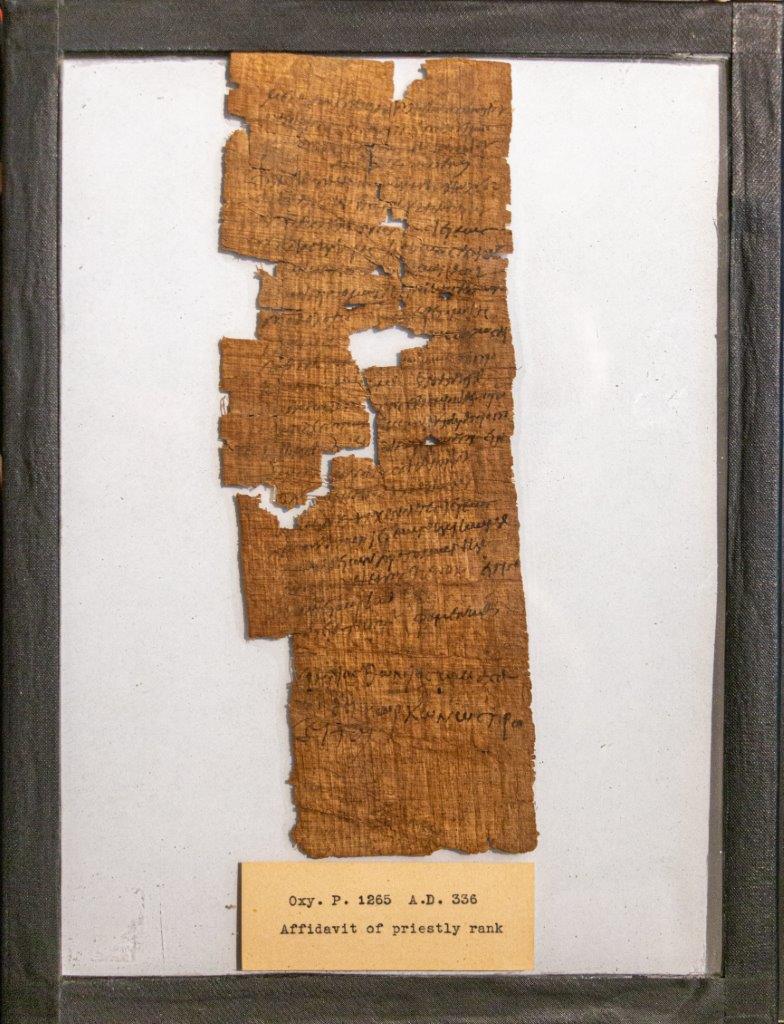
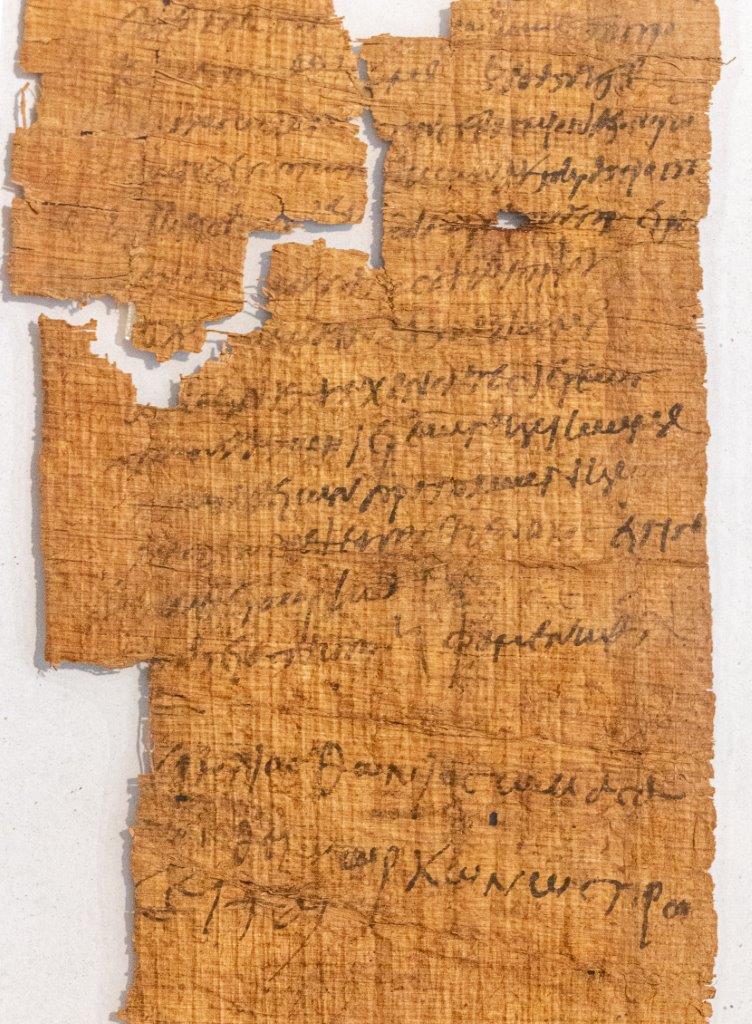
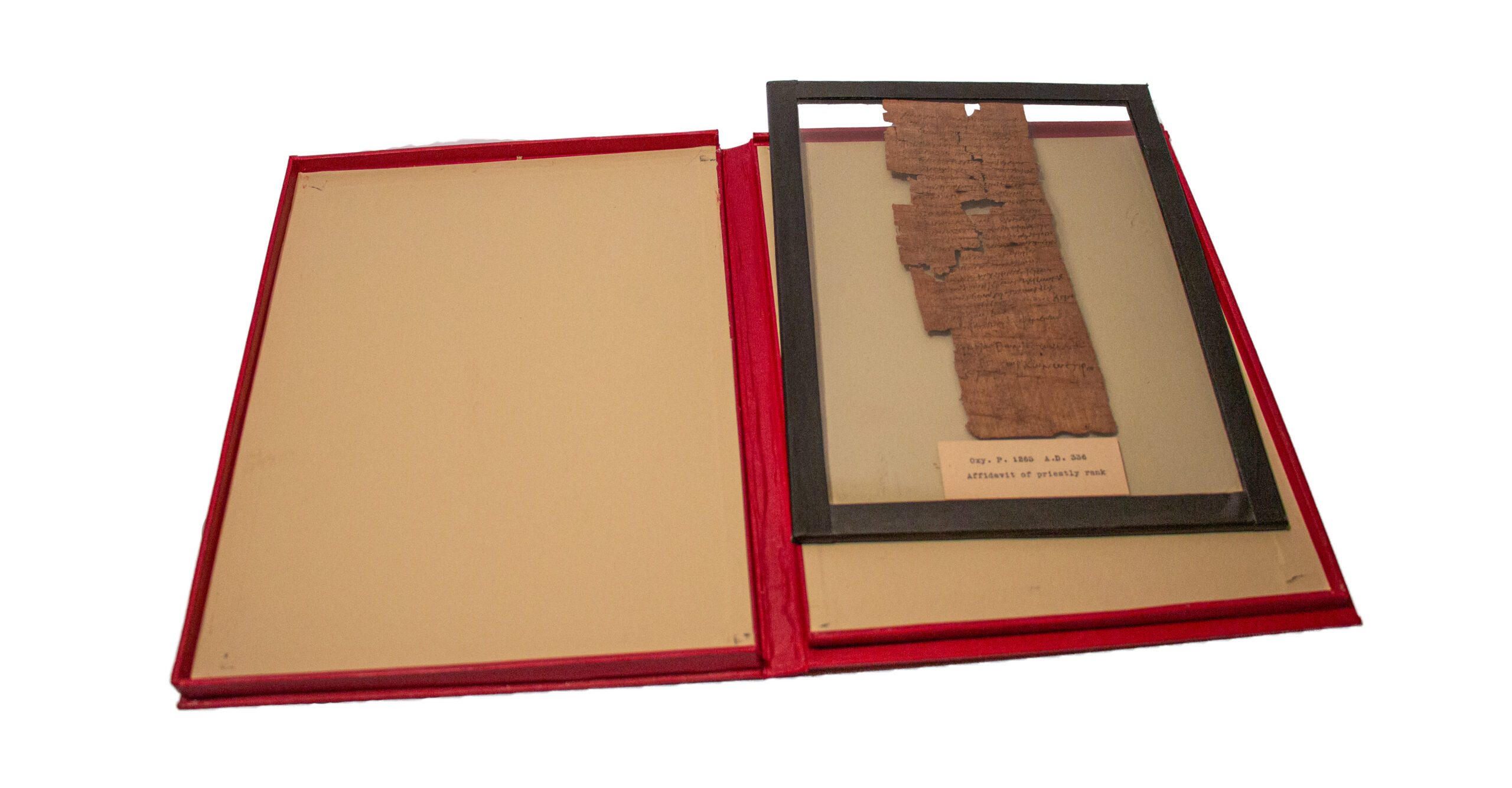
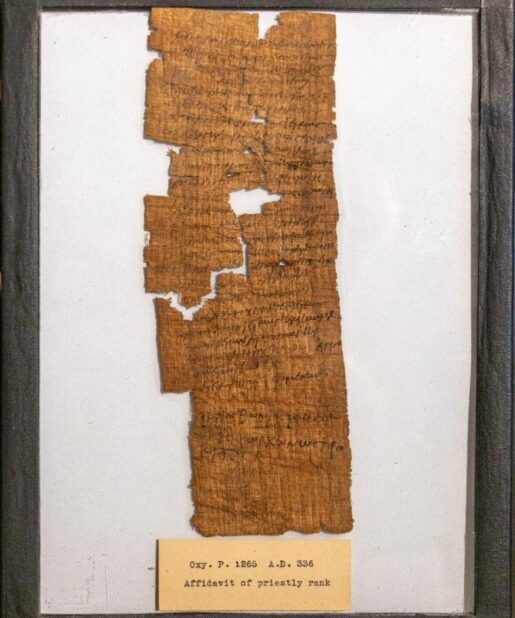
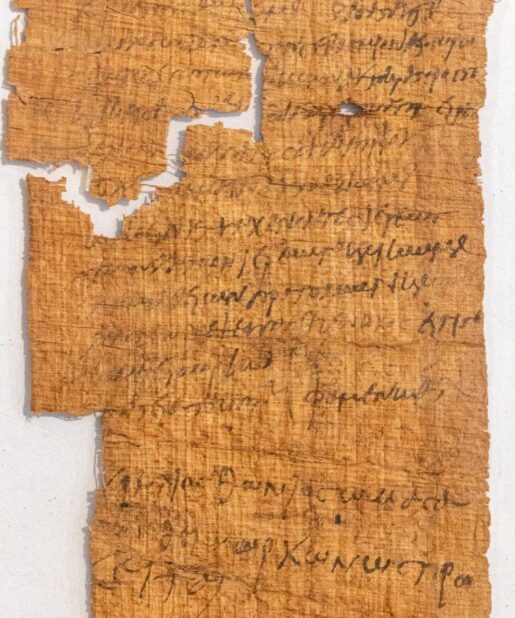
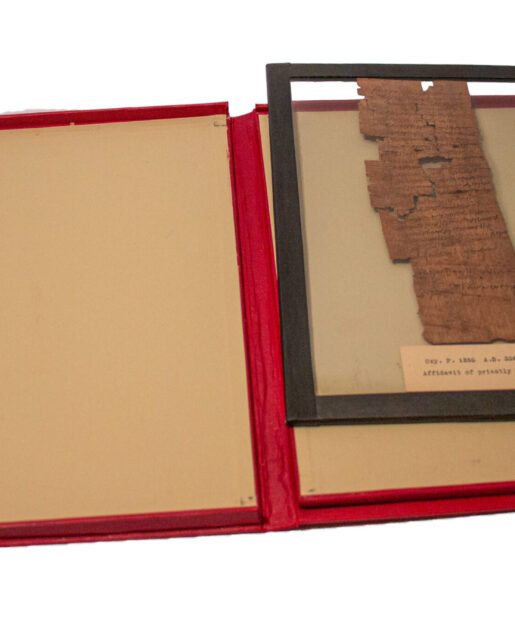
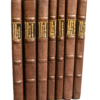
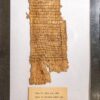
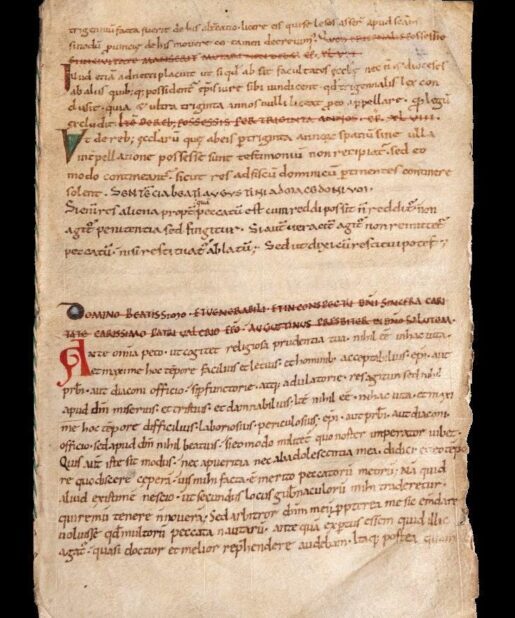
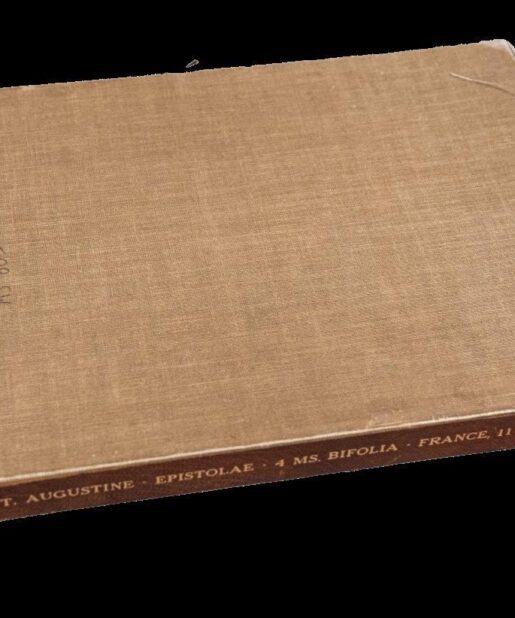
![Fragment of a leaf from Eusebius of Caesarea, Historia ecclesiastica, in Latin, manuscript on vellum [France, 10th century] Fragment of a leaf from Eusebius of Caesarea, Historia ecclesiastica, in Latin, manuscript on vellum [France, 10th century]](https://butlerrarebooks.co.uk/wp-content/uploads/2024/09/IMG_0304-515x618.jpg)
![Saints Peter and Paul, in an illuminated historiated initial ‘N’, cut from a Gradual in Latin on parchment [Italy (Florence); 15th century (c.1470s)] Saints Peter and Paul, in an illuminated historiated initial ‘N’, cut from a Gradual in Latin on parchment [Italy (Florence); 15th century (c.1470s)]](https://butlerrarebooks.co.uk/wp-content/uploads/2022/02/IMG_6782-515x618.jpg)
![Saints Peter and Paul, in an illuminated historiated initial ‘N’, cut from a Gradual in Latin on parchment [Italy (Florence); 15th century (c.1470s)] Saints Peter and Paul, in an illuminated historiated initial ‘N’, cut from a Gradual in Latin on parchment [Italy (Florence); 15th century (c.1470s)]](https://butlerrarebooks.co.uk/wp-content/uploads/2022/02/IMG_6781-515x618.jpg)
![A single leaf; Augustine’s Enarrationes in Psalmos, for Psalm 41:6-8 [manuscript] A single leaf; Augustine’s Enarrationes in Psalmos, for Psalm 41:6-8 [manuscript]](https://butlerrarebooks.co.uk/wp-content/uploads/2021/06/IMG_2115-scaled-515x618.jpg)
![A single leaf; Augustine’s Enarrationes in Psalmos, for Psalm 41:6-8 [manuscript] A single leaf; Augustine’s Enarrationes in Psalmos, for Psalm 41:6-8 [manuscript]](https://butlerrarebooks.co.uk/wp-content/uploads/2021/06/IMG_2112-scaled-515x618.jpg)
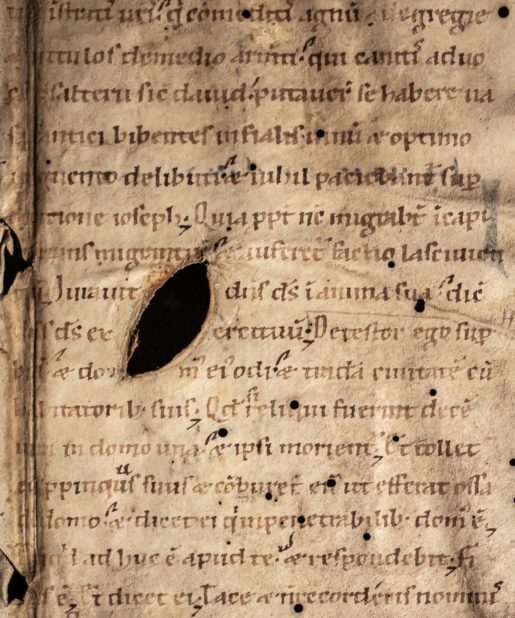
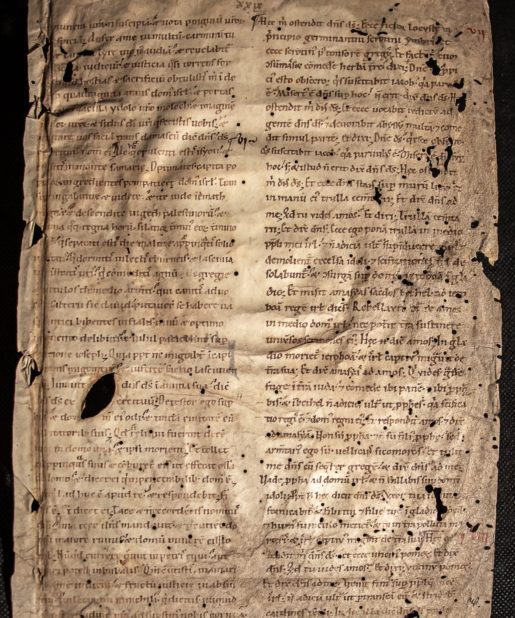
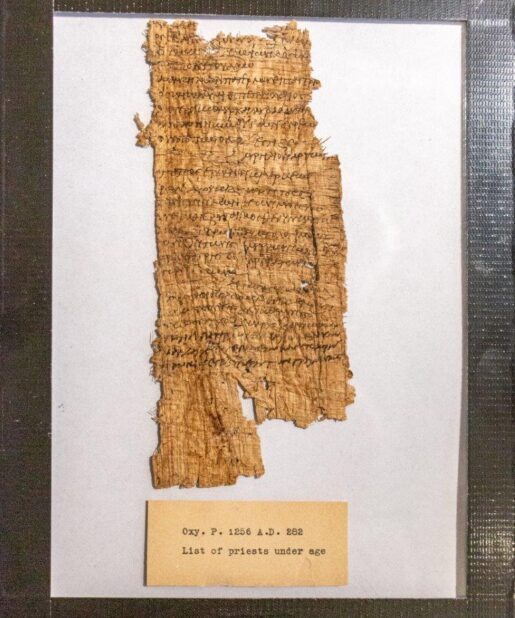
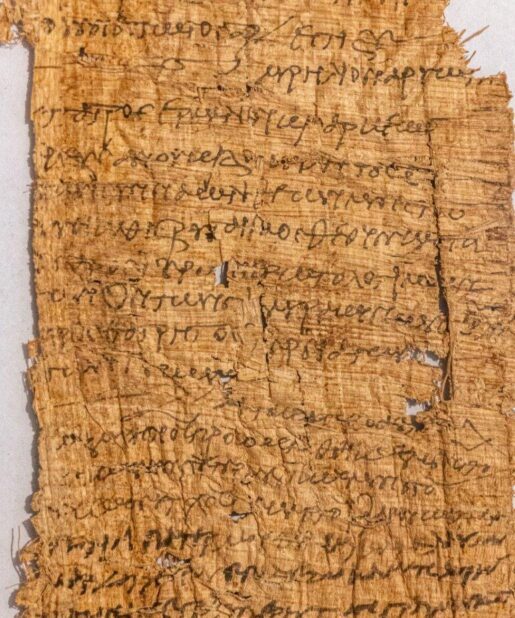
![Commentary on Aristotle, Categoriae, and the same authors translation of Perihermenias BOETHIUS [MS] C.13th Commentary on Aristotle, Categoriae, and the same authors translation of Perihermenias BOETHIUS [MS] C.13th](https://butlerrarebooks.co.uk/wp-content/uploads/2013/08/IMG_8383-515x618.jpg)
![Commentary on Aristotle, Categoriae, and the same authors translation of Perihermenias BOETHIUS [MS] C.13th Commentary on Aristotle, Categoriae, and the same authors translation of Perihermenias BOETHIUS [MS] C.13th](https://butlerrarebooks.co.uk/wp-content/uploads/2013/08/IMG_8379-515x618.jpg)
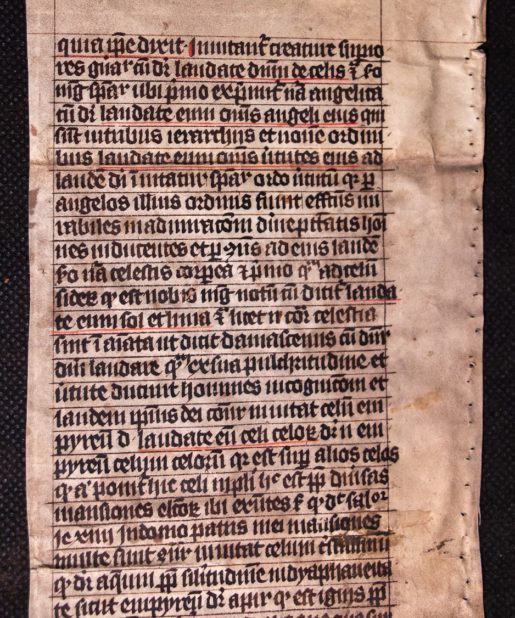
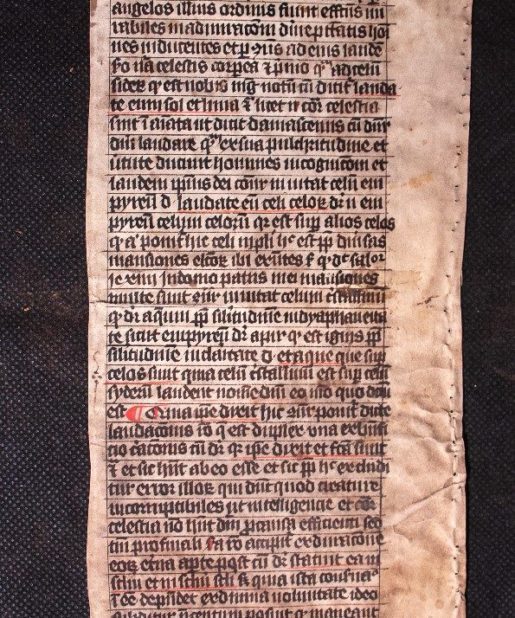
Reviews
There are no reviews yet.